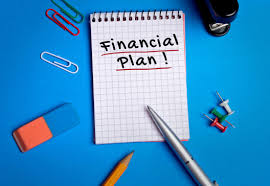 Someone much wiser than I once said, “A goal without a plan is just a wish.” They were right!
Someone much wiser than I once said, “A goal without a plan is just a wish.” They were right!
When asked, most people will tell you they have goals, but when you dig a little deeper you’ll find out that many people struggle to plan around achieving their goals. Some of us naturally have more discipline than others, but regardless, everyone can benefit from exercising his or her planning muscle.
The key to financial planning is having more awareness about your finances—you don’t need to be an expert. A simple way to get started is by taking inventory of all your financial assets—bank accounts, real estate, retirement and investment accounts. Then track down all the things that you owe, such as school loans, credit cards, mortgages and other debt. When you take everything you own and subtract everything you owe, you’ve essentially come up with your net worth.
Financial Plan Kickoff
The best financial advice that I share with people is that it’s not how much money you make, but rather how you save and spend it that’s most important. The key to successful financial planning is increasing awareness of how you use money and other financial resources. Naturally, the next step is tracking your budget. There are plenty of online tools and apps that can make this easy. Most importantly, you need to find a method that works for you, even if that means paper and pencil. So do it. Figure out how much you spend and what you’re spending it on.
If you stop here and don’t go any further, congratulations because you’re already ahead of the pack. Being diligent about these two steps can help you build a solid financial foundation.
When you’re ready for the challenge to move forward, it’s time to think more about your goals. I highly recommend using the SMART Goals method, and you’ll need to prioritize them. Sometimes you’ll find that your goals are related, or that several other goals must be completed before you can accomplish a much larger goal. This is good, and is a critical element to planning because prioritizing your goals will dictate actions you must take to achieve them and in what order.
A recent Gallup poll found that only 38% of investors had a written financial plan. The poll went on to ask those with no written financial strategy why they lacked one, and more than a quarter responded by saying they “hadn’t taken the time” or “hadn’t thought about it.” That’s unfortunate, and it’s something we all have the power to change.
How to Save and Invest
Many of us have financial goals related to saving money, I sure do. This could be for things like buying a house, retirement, college or other goals. But saving without investing usually isn’t enough. Money in savings accounts barely grows because interest rates are so low, it may not even keep up with inflation. Instead, many people choose to invest, which involves the trade-off of putting money at risk for the potential of it growing. Over time investments benefit from compounding interest, and that can really help your money grow for the long term. To view some investing options, check out STKFinans.
Smart investing requires planning. Lots of people invest with a general idea of growing their wealth, but lack an overall game plan, or what we call an investment policy statement. We’ve all heard the old adage “buy low and sell high”—simple right? But without a plan in place, very few people actually follow this advice, and in many cases do the opposite.
Whether you have goals related to family, finances or something else, with a plan in place you are more likely to achieve them.



No Comments